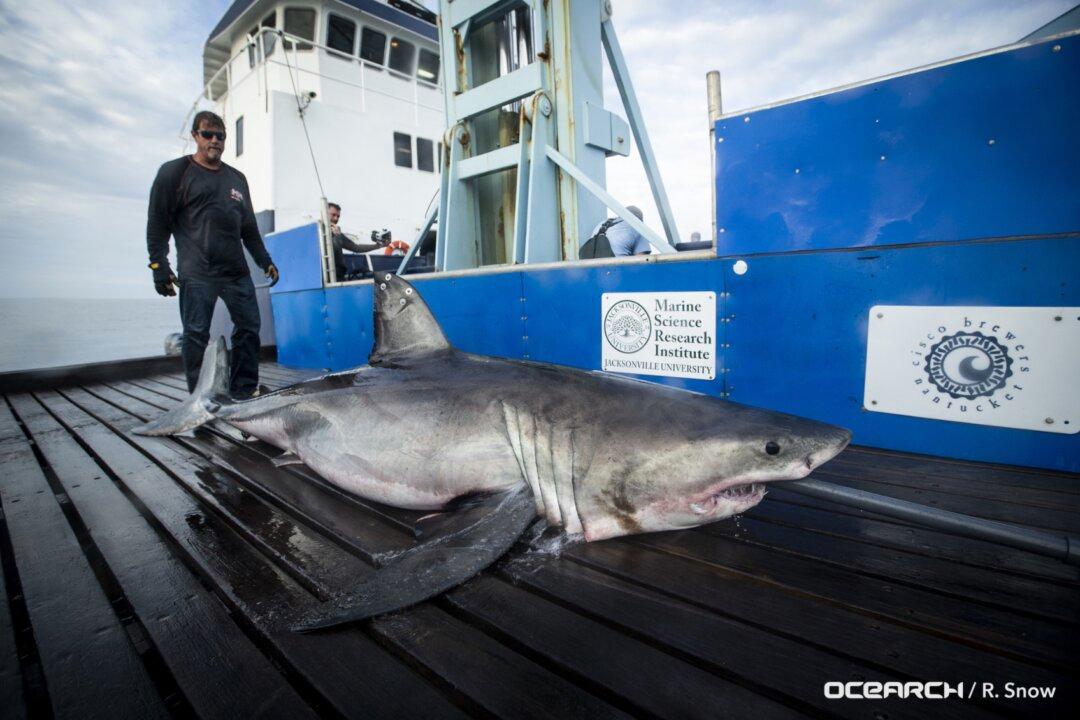Researchers tracking a 10-foot, 800-pound shark off the eastern coast of the United States have announced the massive creature has made its presence known just 15 miles off the coast of Cape Cod by way of a “ping.”
The shark—a great white dubbed Miss May—“pinged in” at 4:58 a.m. on July 9, according to an update on the OCEARCH website, an ocean research organization that tracks sharks.





